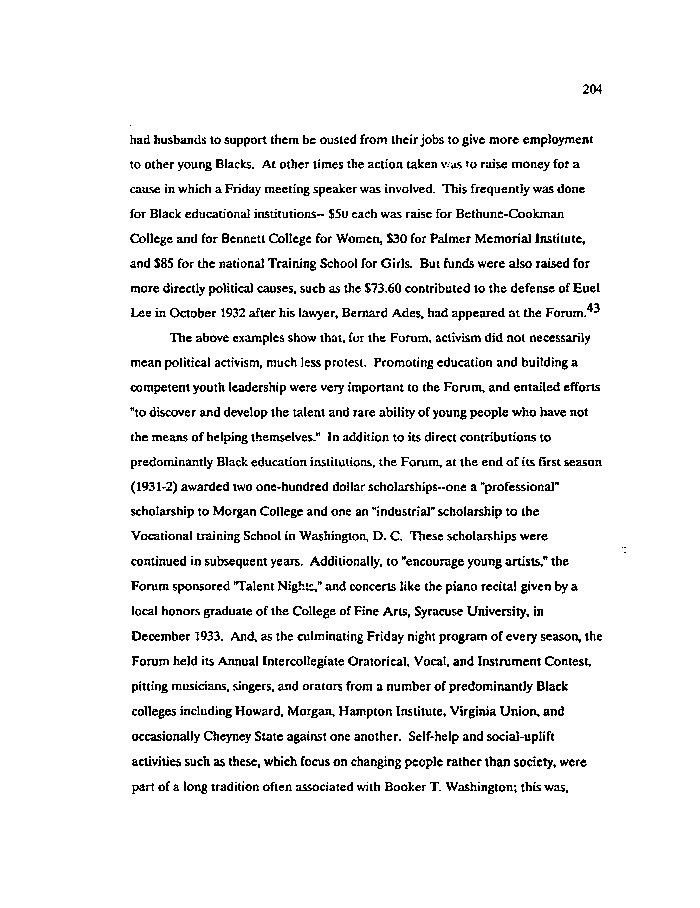|
204
had husbands to support them be ousted from their jobs to give more employment
to other young Blacks. At other times the action taken v as to raise money for a
cause in which a Friday meeting speaker was involved. This frequently was done
for Black educational institutions— $50 each was raise for Bethune-Cookman
College and for Bennett College for Women, $30 for Palmer Memorial Institute,
and $85 for the national Training School for Girls. But funds were also raised for
more directly political causes, such as the $73.60 contributed to the defense of Euel
Lee in October 1932 after his lawyer, Bernard Ades, had appeared at the Forum.
The above examples show that, for the Forum, activism did not necessarily
mean political activism, much less protest. Promoting education and building a
competent youth leadership were very important to the Forum, and entailed efforts
"to discover and develop the talent and rare ability of young people who have not
the means of helping themselves.** In addition to its direct contributions to
predominantly Black education institutions, the Forum, at the end of its first season
(1931-2) awarded two one-hundred dollar scholarships-one a "professional"
scholarship to Morgan College and one an "industrial** scholarship to the
Vocational training School in Washington, D. C. These scholarships were
continued in subsequent years. Additionally, to "encourage young artists," the
Forum sponsored Talent Nights," and concerts like the piano recital given by a
local honors graduate of the College of Fine Arts, Syracuse University, in
December 1933. And, as the culminating Friday night program of every season, the
Forum held its Annual Intercollegiate Oratorical, Vocal, and Instrument Contest,
pitting musicians, singers, and orators from a number of predominantly Black
colleges including Howard, Morgan, Hampton Institute, Virginia Union, and
occasionally Cheyney State against one another. Self-help and social-uplift
activities such as these, which focus on changing people rather than society, were
part of a long tradition often associated with Booker T. Washington; this was,
|

